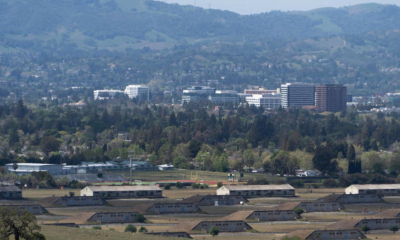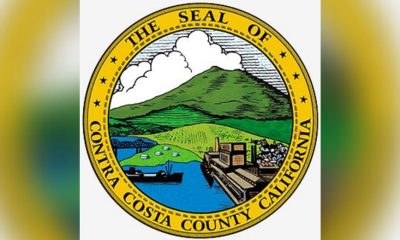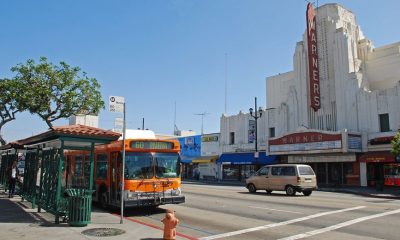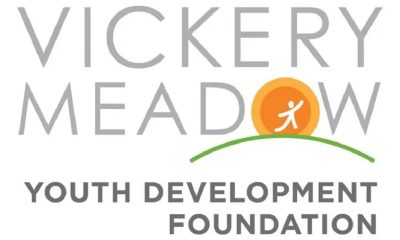Covid-19
Concord, Contra Costa County looking at new taxes to help with budget crunch
As the pandemic continues to put a pinch on local services, both the city of Concord and Contra Costa County are preparing to bring sales tax measures to voters in November.
On July 28, the Concord City Council voted 5-0 to place a one-cent sales tax on the Nov. 3 ballot. The tax would extend the half-cent Measure Q, which the city relied on to maintain essential services even before the economic crisis due to March’s shelter-in-place order.
On the same day, the county Board of Supervisors introduced a countywide half-cent sales tax that would raise an estimated $81 million a year for the next 20 years. The county says the money would go into the General Fund and would include support for fire districts, Contra Costa’s regional hospital and “safety net” services.
Changing the tax cap
However, the tax plans are contingent on the passage of Senate Bill 1349. Sponsored by Sen. Steve Glazer, D-Orinda, the bill would allow an increase to the county’s sales tax limit.
“This doesn’t apply to every jurisdiction in Contra Costa County,” noted county Supervisor Karen Mitchoff. “But in order to proceed, we need to have permission to go over the cap so that if the ballot measure passes, we can collect in those jurisdictions.”
If both the county and Concord measures pass, Concord taxes would be above the current cap, according to Jennifer Ortega, Concord’s Community Relations manager.
The Senate passed the bill on June 11 and referred it to the Assembly Local Government Committee, which will hold a hearing on Aug. 11. Steven Stenzler, chief of staff for Assemblyman Tim Grayson of Concord, says Grayson has not taken a position on the bill yet.
As the county awaits state action, the Board of Supervisors voted 4-1 Aug. 4 on the second and final resolution to place the Healthy and Safe Contra Costa sales tax measure on the ballot.
“Going to the ballot is not a sure thing,” Mitchoff told the Pioneer. “The current matter before the board will come to us again in special session on Friday, Aug. 21, so that if it hasn’t passed the Assembly by that date and we don’t have a firm personal commitment from the governor that he will sign it, the board can pull the matter so it doesn’t go to print.”
She said the county would incur a minimum cost of $500,000 if the measure is placed on the ballot.
“I am not willing to spend those dollars if we don’t know the bill will pass and be signed by the governor,” Mitchoff said. “At best, I believe we are at a 50-50 chance of going to the ballot. Although advocates of the measure believe the board should ‘gamble’ (my word, not theirs) that all the pieces fall in place.”
Help for East County fire district?
Chief Brian Helmick of the East Contra Costa Fire Protection District (ECCFPD) is closely monitoring the situation.
Due to severe budget constraints, the fire district adopted a policy last month to only send firefighters inside a burning building if human life is at risk. The ECCFPD service area includes Marsh Creek and Morgan Territory.
“While it is a general sales tax, if approved, it is Supervisor (Diane) Burgis’ intent that a portion of those revenues will be used to improve fire service in East Contra Costa County,” Helmick said. “This is one of many initiatives the district will watch and seek to gain a better understanding of as we work to correct the historical underfunded fire services levels throughout ECCFPD’s jurisdiction.”
Meanwhile, the county says the Contra Costa Regional Medical Center faces a $70 million shortfall, and community health facilities are struggling to remain open.
“In the last month, we’ve witnessed a spike in COVID-19 cases, the active start to our fire season, the continued need for food, income and housing security, and the urgency for reliable early childhood programming for parents as they return to work,” said Mariana Moore, co-chair of the Potential Sales Tax Measure Ad Hoc Committee Working Group. “More than ever, county residents need a safeguard to ensure that essential services remain available and accessible during worldwide and personal crises.”
Evaluating Concord’s needs
Concord first put the half-cent sales tax on the ballot in 2010, in response to the Great Recession. Voters approved that and then an extension in 2014. The current tax expires in 2025.
The new one-cent tax, referred to as the Concord City Services Measure, would extend Measure Q until ended by voters. The city estimates it would raise $27 million annually.
“With Measure Q revenues, the city has been able to preserve essential services and restore its emergency reserve funds,” Ortega wrote in a staff report. “However, the city has not been able to fully address community priorities, such as repairing deteriorating local roads and ensuring local control over local tax dollars to support emergency response times and preparedness, community-based neighborhood police patrols, gang prevention, and park and recreation programs.”
Those services were among the priorities identified in an April survey of more than 1,200 residents by Godbe Research. Respondents also wanted funds to support local businesses and residents through the economic recovery from the COVID-19 crisis.
“The results show there is substantial support for a simple-majority local revenue extension measure at a one-cent rate,” Ortega said.






















